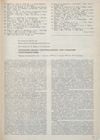 56 citations,
October 2018 in “Journal of The American Academy of Dermatology”
56 citations,
October 2018 in “Journal of The American Academy of Dermatology” Androgens play a complex role in skin conditions like acne and hair loss in women, and normal blood levels don't always show true androgen status.
 30 citations,
March 2010 in “European Journal of Dermatology”
30 citations,
March 2010 in “European Journal of Dermatology” Hair loss in elderly women is often caused by various factors, including hormonal changes after menopause.
 2 citations,
September 2004 in “Fertility and sterility”
2 citations,
September 2004 in “Fertility and sterility” High androgen levels can cause excessive hair growth and may indicate serious health issues, including heart disease and fertility problems.
Androgens increase norepinephrine release, promoting smooth muscle growth in male sex organs, which may contribute to benign prostatic hypertrophy.
 3 citations,
August 2019 in “Journal of The American Academy of Dermatology”
3 citations,
August 2019 in “Journal of The American Academy of Dermatology” Clascoterone safely promotes hair growth similar to minoxidil.
 January 1993 in “Проблемы Эндокринологии”
January 1993 in “Проблемы Эндокринологии” Spironolactone effectively reduces symptoms of hyperandrogenism but has some side effects.
 124 citations,
August 1990 in “British Journal of Dermatology”
124 citations,
August 1990 in “British Journal of Dermatology” Diffuse alopecia in women may be related to androgens and iron deficiency, and basic hormone and nutrient screening is useful.

Older male COVID-19 patients are more likely to experience hair loss.
![Synthesis, Biological Evaluation, and Molecular Docking of 4-Amino-2H-benzo[h]chromen-2-one Analogs Containing the Piperazine Moiety](/images/research/2ecf4eed-7dbe-4f1a-83db-739625546cdd/small/31808.jpg) 7 citations,
August 2019 in “Bioorganic & medicinal chemistry”
7 citations,
August 2019 in “Bioorganic & medicinal chemistry” Analog 23 is a promising compound for prostate cancer treatment.
 4 citations,
January 2019 in “Obstetrics & gynecology science”
4 citations,
January 2019 in “Obstetrics & gynecology science” A PET-CT scan successfully located a hard-to-find Leydig cell tumor in a woman with hormonal symptoms.
 June 2024 in “Journal of medicinal chemistry”
June 2024 in “Journal of medicinal chemistry” A new AI-driven method shows promise for treating hair loss with a peptide-based drug.
 January 1996 in “Springer eBooks”
January 1996 in “Springer eBooks” Hair loss increases with age and is triggered by hormones like androgens.
 31 citations,
January 2003 in “Dermatology”
31 citations,
January 2003 in “Dermatology” Steroidogenic isoenzymes may help improve treatments for common hair loss.
 39 citations,
January 2013 in “Indian Journal of Dermatology, Venereology and Leprology”
39 citations,
January 2013 in “Indian Journal of Dermatology, Venereology and Leprology” Eating high glycemic foods and drinking milk may worsen acne by increasing insulin and IGF-1 levels.
 40 citations,
January 2013 in “Frontiers in Endocrinology”
40 citations,
January 2013 in “Frontiers in Endocrinology” Finger length ratios are not linked to the number of specific gene repeats affecting testosterone sensitivity.
64 citations,
June 1995 in “Steroids” Inhibitors of the enzyme 5 alpha-reductase could potentially treat disorders like prostate cancer and baldness.
 24 citations,
January 2013 in “Indian Journal of Dermatology, Venereology and Leprology”
24 citations,
January 2013 in “Indian Journal of Dermatology, Venereology and Leprology” Hormonal treatment is effective for women with acne not helped by usual treatments, especially if they have hormonal imbalances.
 54 citations,
February 1993 in “Endocrine reviews”
54 citations,
February 1993 in “Endocrine reviews” Androgen conjugates might be better indicators of skin sensitivity to hormones in women with excessive hair growth.
 November 2023 in “Manuju”
November 2023 in “Manuju” Treating hyperprolactinemia can help manage PCOS symptoms.
 5 citations,
December 2021 in “Physiological Research”
5 citations,
December 2021 in “Physiological Research” Men, particularly those with hair loss, are more likely to get the virus, and those with prostate cancer may have milder symptoms. Testosterone's role in the disease is unclear, and the virus doesn't seem to harm male fertility. Women with PCOS might be at higher risk. More research is needed.
 3 citations,
March 2021 in “Metabolites”
3 citations,
March 2021 in “Metabolites” Hair loss causes differ between men and women due to changes in hormone levels and inflammation-related pathways.
 1 citations,
April 2021 in “International Journal of Dermatology”
1 citations,
April 2021 in “International Journal of Dermatology” Women with conditions like PCOS may have a higher risk of COVID-19, but treatments like isotretinoin could help those with acne.
 14 citations,
December 2013 in “Experimental Dermatology”
14 citations,
December 2013 in “Experimental Dermatology” The T-zone on the face has more androgen receptors and produces more oil than the U-zone.
 11 citations,
September 2021 in “Journal of molecular endocrinology”
11 citations,
September 2021 in “Journal of molecular endocrinology” ERβ has potential in treating prostate cancer and neurodegenerative diseases, but human studies are needed before clinical use.
 12 citations,
December 2012 in “Current Drug Targets”
12 citations,
December 2012 in “Current Drug Targets” The Androgen Receptor could be a target for treating diseases like cancer, but more research is needed to confirm the effectiveness of potential treatments.
 5 citations,
January 2022 in “Clinical cancer investigation journal”
5 citations,
January 2022 in “Clinical cancer investigation journal” Certain Dibenzo derivatives may help treat prostate cancer.
 4 citations,
January 2002 in “Annals of Dermatology”
4 citations,
January 2002 in “Annals of Dermatology” Androgenetic alopecia, or hair loss, is most common in people in their 30s, can start early, is often inherited, and may be influenced by factors like hormones and scalp health.
 December 2016 in “Int J Genet”
December 2016 in “Int J Genet” Male pattern baldness is partly caused by specific genes, but most genetic factors are still unknown.
 30 citations,
November 2013 in “PLOS ONE”
30 citations,
November 2013 in “PLOS ONE” Androgen receptor signaling causes early aging of cells important for hair growth by damaging their DNA.
 22 citations,
May 1999 in “International Journal of Dermatology”
22 citations,
May 1999 in “International Journal of Dermatology” Hair loss from genetics and hormones can be treated with drugs or surgery.








![Synthesis, Biological Evaluation, and Molecular Docking of 4-Amino-2H-benzo[h]chromen-2-one Analogs Containing the Piperazine Moiety](/images/research/2ecf4eed-7dbe-4f1a-83db-739625546cdd/small/31808.jpg)



















